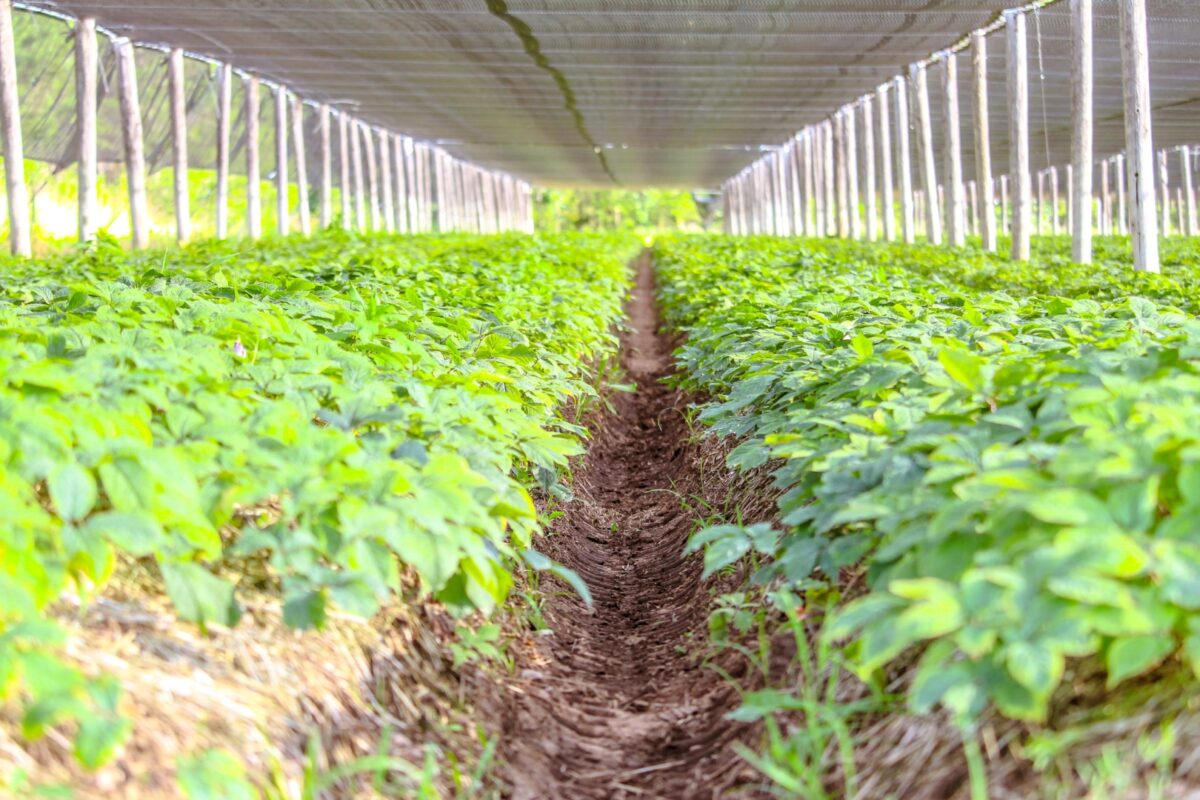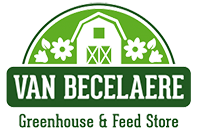Tips to Protect Your Garden Against the 2022 Summer Heat Wave

Posted on July 22, 2022 by Van Becelaere Greenhouse
As summer temperatures tip the scales into the triple digits, many gardeners across the four states struggle to keep their gardens thriving. Although, many plants react differently to rising temperatures.
How Summer Temperatures Affect Gardens
In the past week or more, you’ve probably received alerts from the National Weather Service about extreme heat advisories. That has likely got you scrambling to figure out ways to save their crops amid rising temperatures.
Although plants respond differently to environmental temperatures, leafy greens prefer cooler temperatures below 75 degrees. A typical response above 75 degrees is to go to seed, often referred to as bolting.
If a plant bolts, those same plants will die off if temperatures rise above 90 degrees. But squash and zucchini plants will slow in producing vegetables in temperatures above 85 degrees. In comparison, pepper and tomato plants thrive and survive at temperatures between 75 and 90 degrees.
In recent weeks though, the outside temperatures have risen well into the hundreds, and there’s no sign of relief in our weather forecast. By default, these drought conditions can lead to many problems for gardens, such as:
- Heat Stress
- Root Rot
- Vegetable Scorching
- Insect Infestation
Tips to Safeguard Your Garden From Triple Digit Temps
You can do many things to safeguard your garden from triple-digit temperatures. The simplest solution is to start with recognizing the signs of heat stress.
Heat Stress Signs
When plants are in distress because of increasing outdoor temperatures, you might be wondering, like other gardeners in the four states area, how you can save your garden. Whether your garden is in raised beds, planted in-ground, or you’re a container gardener, all plants will experience heat stress of some kind. The top signs to look for are:
- Leaf rolling and cupping
- Wilting
- Dried leaf edges
- Fruit or blossom drop
- Bolting
- Sunscald
- End Rot
Recover From Root Rot
If you find your container garden is holding water and not drying daily, you may be dealing with root rot. Another significant indicator is the smell. If you notice a sulphurous odor, similar to rotting eggs, you must act swiftly.
It may seem impossible to recover from root rot, but the steps to recover from it are simple. First, withdraw the plant from the potting soil and discard the contaminated soil. Next, wash the pot with a bleach solution (1 cap full of bleach to 1 gallon of water). Unfortunately, any clay and terra cotta pots need to be tossed.
Wash the plant’s roots to clear away as much contaminated soil as possible. Then trim off any roots that appear or feel mushy with clean shears. Finally, dip the roots in a fungicide solution to kill any remaining root rot fungus. Then repot with a clean pot and good clean potting mix.
Shade Protection for Plants and Crops
The first step to gardening is a sound irrigation system to keep from overwatering and mulch the soil surface around each plant to help keep the soil damp. Then you’ll want to shade your garden to block out intense UV rays that can scorch your plants and crops.
You can either repurpose bed sheets or old windows screens to effectively cool and provide the necessary coverage to keep your plants and crops from sunscalding. If you prefer, you can even use lattice or insect netting to give the essential coverage for your plants.
Use Pest Controls Sparingly
Insects can propagate rapidly as summer temperatures rise. Some pesticides, like neem oils, can burn your plants as it becomes increasingly warmer outside. An unfortunate side-effect of increasing temperatures is pesticides become less effective against invading insects.
You can also enclose predator insects beneath the netting, like the North American Ladybug or the native Missouri Carolina Mantis. Mantis’ are ambush predators and can help keep flying insects and caterpillar numbers low.
Local Garden Centers
If you’re having no luck with these solutions, you can always stop in and talk with the friendly staff at the Van Becelaere Greenhouse in Pittsburg, Kansas. Their knowledgeable staff can provide you with a laundry list of options for any fungicides or pesticides that are right for protecting your garden against the summer heat.
